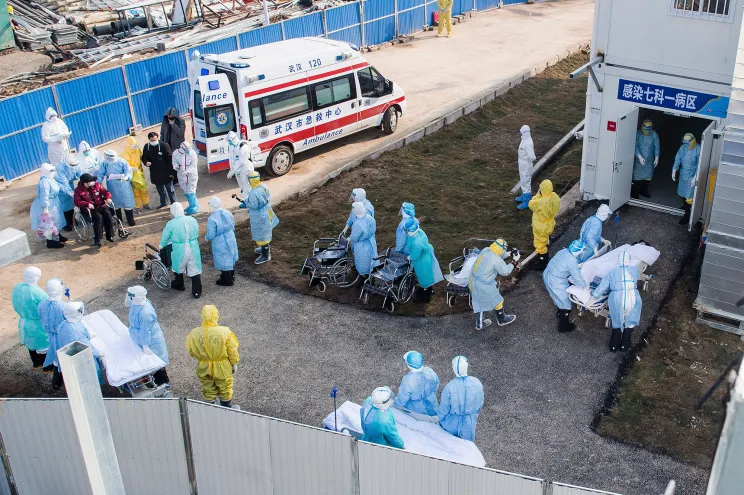The global community has once again become concerned about a new, mysterious pneumonic symptoms disease in China. Hospitals in China are struggling to get beds for the influx of children, suffering from undiagnosed pneumonia. The symptoms of the newly found disease are more common fever-type signals along with inflammation in the lungs. Though WHO has urged Beijing to submit the current data, still it warned the Chinese people to adopt precautionary measures like wearing masks and washing their hands in advance.
As reported by Firstpost, the children seem to be more vulnerable in the context of this disease. The hospitals of China are already overwhelmed with the number of sick children. China is infamous for gifting the world Covid-19. There are several claims on the international platform that the virus originated in the Wuhan province of China, which eventually became widespread during the pandemic in 2020. The current reporting in the media repeatedly stated that the pneumonic outbreak has escalated in Chinese cities, including the capital city of Beijing.
Known story of China
The recent outbreak of pneumonic disease has become a major concern. The entire story sounds very familiar to all of us. As per the latest report by a Taiwanese news media source, children were flooding the city hospitals of Beijing and Liaoning, one of the coastal provinces on the Northeast side of China.
Since 2020, several countries including India have claimed the Wuhan laboratory as the source point for the pandemic. In 2021, an expert group of WHO went there to investigate the case, but did not get any substantial evidence for that claim. However, it is doubtful that if not Wuhan, then what was the source of that virus?
The Covid has claimed two years from everyone’s life. The situation was scary due to the unprecedented halt of global activities. The borders have been closed due to the outbreak of the pandemic. Scientists have once again raised alarm for this pneumonic disease. ProMED is a publicly available surveillance system that monitors disease outbreaks worldwide. Notably, this is the same body that drew the attention of the WHO, toward the mystery virus in December 2019, which eventually came to be known as Sars-Cov-2.
Source: India Times
China recently experienced a pneumonia outbreak that attracted notice and worry from around the world. In late 2019, the outbreak was first discovered in Wuhan, in the province of Hubei. The sickness known as COVID-19 was caused by a novel coronavirus called SARS-CoV-2. Due to the virus’s quick proliferation, numerous attempts were made to stop its spread.
Current scenario
Given that several of the early instances of the pneumonia outbreak were connected to a Wuhan seafood market, concerns were raised over the virus’s origin. Later research, however, looked into the idea of zoonotic transmission—the virus possibly starting in animals and then making its way to people.
China implemented harsh measures, such as lockdowns and travel restrictions, in response to the epidemic in an attempt to stop the virus’s spread. The international community kept a careful eye on the situation, and cooperative initiatives were launched. The current situation can create a careful attitude for the international community, given the present context of the outbreak of a new pneumonic disease.
Source: India Times
The pneumonia outbreak underscored the importance of global cooperation in addressing public health crises. It also highlighted the need for robust surveillance and response mechanisms to detect and manage emerging infectious diseases promptly. The experience emphasized the interconnectedness of nations in the face of health challenges and prompted discussions on strengthening global health infrastructure to prevent and mitigate future outbreaks.
The scale of massive attacks especially on children is a worrisome situation worldwide. Analysts have already started to warn the countries to have advanced measures to prevent the outbreak of this disease again.
